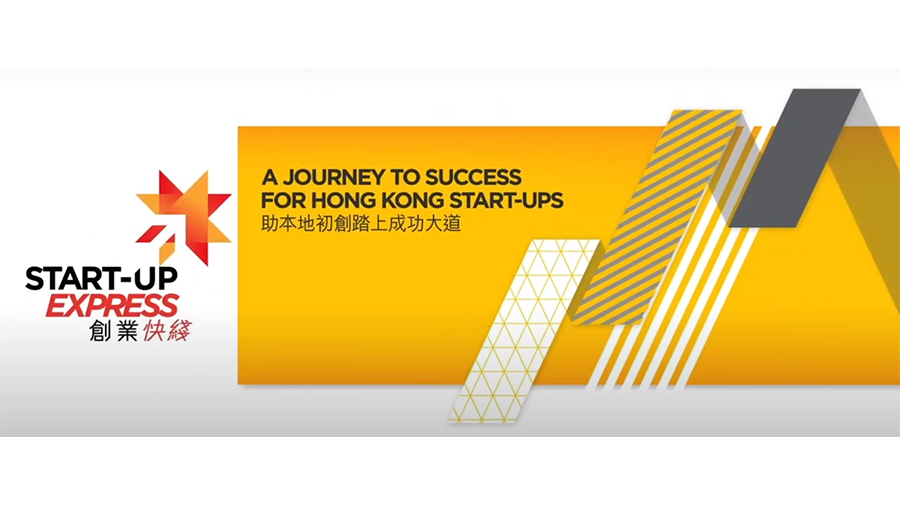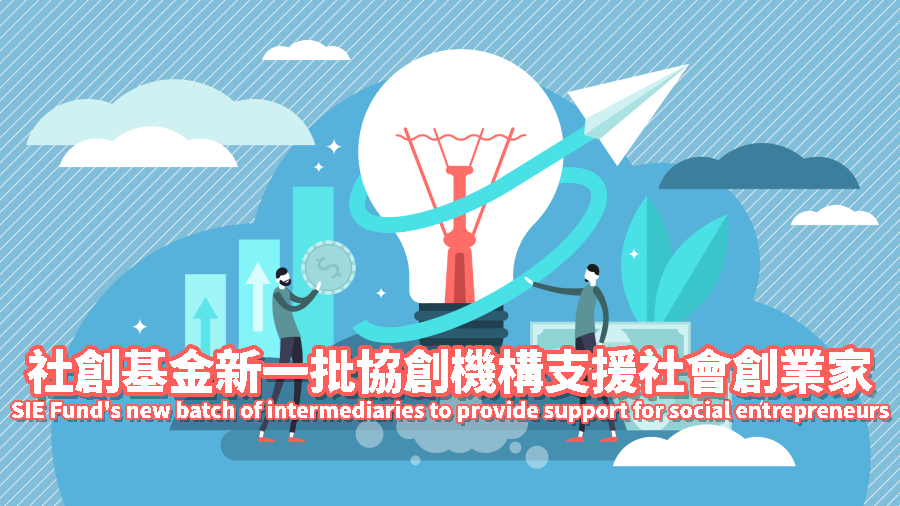Entrepreneurship in the Greater Bay Area

粵港澳大灣區創業大賽複賽火熱開啓 資源精準對接 賦能大灣區創業生態 (Chinese only)
(The story is in Chinese only. Please refer to the Chinese version.)

Qianhai unveils 12 measures to empower HK, Macao youths (Chinese only)
(The story is in Chinese only. Please refer to the Chinese version.)

The 2025 Guangdong-Hong Kong-Macau Greater Bay Area Entrepreneurship Competition (Chinese only)
(The story is in Chinese only. Please refer to the Chinese version.)

[GoGBA one-stop platform] New features to help develop businesses in the Greater Bay Area
Unleash the potential for local young people and Small and Medium Enterprises in the thriving Greater Bay Area (GBA). Hong Kong Trade Development Council's GoGBA one-stop platform offers comprehensive career and business information in the GBA. The GoGBA Go-to Guides for instance, hope to help entrepreneurs and businesses with the first steps of setting up a business, handling taxation and completing related procedures. Connect with business partners and access career information in the GBA with just few clicks! Visit www.go-gba.com to know more!Stay connected with our GoGBA WeChat Mini-program for the latest updates.(Scan QR code in WeChat)
More Information
Startup Support

SME Link
Thinking of starting a business? Want to learn what to watch out for when setting up business in Hong Kong? Curious about government funding available, or incubation and start-up internship programmes for young entrepreneurs? The “SME Link” website might be able to help you out!To strengthen support for the small and medium enterprises (SMEs) and to raise SMEs' awareness of the various funding schemes, the Hong Kong Special Administrative Region Government has consolidated the services of the existing four SME centres, namely, the "Support and Consultation Centre for Small and Medium Enterprises" (SUCCESS) under the Trade and Industry Department, the "SME Centre" under the Hong Kong Trade Development Council, the "SME One" under the Hong Kong Productivity Council and the "TecONE" under the Hong Kong Science and Technology Parks Corporation, to provide one-stop "Four-in-One" integrated services for SMEs. Enterprises can obtain business information, funding schemes information and advisory services, etc. at any of the centres. The "SME Link" web portal is a new initiative of the Government to further enhance the integrated services of the SME centres whereby SMEs can access information and support services from a single online platform.The "SME Link" features links to information and services provided by the four SME centres, various industrial and trade organisations, professional bodies and government bureaux and departments. The contents are mainly organised into four clusters, namely "Support for SMEs", "Decarbonisation ‧ Business Action", "Events & Activities", and "News".Under the cluster "Support for SMEs", information and services are further categorised by subjects under a customer-oriented approach, comprising "Government Funding Schemes", "Non-financial Assistance", "Startups", "Mainland Market" and "Overseas Markets", facilitating SMEs to search for useful information and services in a more systematic way.Among all, the "Government Funding Schemes" section features over 70 government funding schemes, each with an overview and links to relevant websites. SMEs can search for suitable funding schemes based on their business needs and industry, and explore details such as eligibility criteria and maximum funding amounts etc.The "Startups" section offers links to websites packed with entrepreneurial tips, guides to doing business in Hong Kong, insights into local startup trends, and other online resources tailored for SMEs. If you're considering starting your own business, it's worth visiting the “SME Link” website regularly to stay updated on the latest support services available for SMEs!Source:SME Link Website

“Start-up Express 2025” - A Journey to Success for Hong Kong Start-ups
Start-up Express is Hong Kong Trade Development Council (HKTDC)’s highly curated start-up development programme that targets start-ups offering innovative and tech products or solutions, as well as those with strong desire to enter the international market. The programme aims to assist local start-ups in building capability and connections, exploring markets, seeking business and funding partners, and enhancing brand awareness.The programme offers start-ups with unique opportunities to learn, grow and connect. Each year, 10 winners will be selected as the annual cohort who will be exposed to vigorous marketing activities and earned attention from investors, media and potential partners. Target Participants Start-ups incorporated for 5 years of less;Start-ups raising less than USD10 million in funding;Start-ups with a valid business registration in Hong Kong;Start-ups with a focus on technologies including but not limited to Edtech, Fintech, Health tech, Prop tech, Smart city, Sustainability.Registration is open till 7 May 2025. For further details on the programme and registration method, please visit the official website.Click here to view the details of the past winners.

[Social Innovation] SIE Fund's new batch of intermediaries to provide support for social entrepreneurs
The Social Innovation and Entrepreneurship Development Fund (SIE Fund) has appointed four organisations as the third batch of intermediaries in 2023 to run a new round of innovative programmes to provide support for more social entrepreneurs. By promoting social innovation and entrepreneurship, it enables more social entrepreneurs to address social needs through innovative ideas, products and services, and assists the Government in formulating targeted poverty alleviation initiatives. The four intermediaries appointed are Fullness Social Enterprises Society Ltd, the Hong Kong Council of Social Service, MakerBay Foundation Limited and Oxfam Hong Kong.The four intermediaries are knowledgeable and experienced organisations in the social innovation field. They aim to nurture and support social innovators and organisations to develop innovative projects with diversity and impact through the following innovative programmes. Individuals and organisations with innovative ideas in addressing poverty issues and wish to seek financial support to implement innovative projects may learn more by clicking the below logos and approach the intermediaries running innovative programmes directly and submit applications under their funding schemes.Wish to compare the four innovative programmes in one go? Do not miss the Programme at a glance, a clear comparison table highlighting the eligibility, amount of grant and uniquite features of the prorgammes. Innovator FarmImpact IncubatorImpact Innovation LabGrant for Good

SME Link
Thinking of starting a business? Want to learn what to watch out for when setting up business in Hong Kong? Curious about government funding available, or incubation and start-up internship programmes for young entrepreneurs? The “SME Link” website might be able to help you out!To strengthen support for the small and medium enterprises (SMEs) and to raise SMEs' awareness of the various funding schemes, the Hong Kong Special Administrative Region Government has consolidated the services of the existing four SME centres, namely, the "Support and Consultation Centre for Small and Medium Enterprises" (SUCCESS) under the Trade and Industry Department, the "SME Centre" under the Hong Kong Trade Development Council, the "SME One" under the Hong Kong Productivity Council and the "TecONE" under the Hong Kong Science and Technology Parks Corporation, to provide one-stop "Four-in-One" integrated services for SMEs. Enterprises can obtain business information, funding schemes information and advisory services, etc. at any of the centres. The "SME Link" web portal is a new initiative of the Government to further enhance the integrated services of the SME centres whereby SMEs can access information and support services from a single online platform.The "SME Link" features links to information and services provided by the four SME centres, various industrial and trade organisations, professional bodies and government bureaux and departments. The contents are mainly organised into four clusters, namely "Support for SMEs", "Decarbonisation ‧ Business Action", "Events & Activities", and "News".Under the cluster "Support for SMEs", information and services are further categorised by subjects under a customer-oriented approach, comprising "Government Funding Schemes", "Non-financial Assistance", "Startups", "Mainland Market" and "Overseas Markets", facilitating SMEs to search for useful information and services in a more systematic way.Among all, the "Government Funding Schemes" section features over 70 government funding schemes, each with an overview and links to relevant websites. SMEs can search for suitable funding schemes based on their business needs and industry, and explore details such as eligibility criteria and maximum funding amounts etc.The "Startups" section offers links to websites packed with entrepreneurial tips, guides to doing business in Hong Kong, insights into local startup trends, and other online resources tailored for SMEs. If you're considering starting your own business, it's worth visiting the “SME Link” website regularly to stay updated on the latest support services available for SMEs!Source:SME Link Website

“Start-up Express 2025” - A Journey to Success for Hong Kong Start-ups
Start-up Express is Hong Kong Trade Development Council (HKTDC)’s highly curated start-up development programme that targets start-ups offering innovative and tech products or solutions, as well as those with strong desire to enter the international market. The programme aims to assist local start-ups in building capability and connections, exploring markets, seeking business and funding partners, and enhancing brand awareness.The programme offers start-ups with unique opportunities to learn, grow and connect. Each year, 10 winners will be selected as the annual cohort who will be exposed to vigorous marketing activities and earned attention from investors, media and potential partners. Target Participants Start-ups incorporated for 5 years of less;Start-ups raising less than USD10 million in funding;Start-ups with a valid business registration in Hong Kong;Start-ups with a focus on technologies including but not limited to Edtech, Fintech, Health tech, Prop tech, Smart city, Sustainability.Registration is open till 7 May 2025. For further details on the programme and registration method, please visit the official website.Click here to view the details of the past winners.

[Social Innovation] SIE Fund's new batch of intermediaries to provide support for social entrepreneurs
The Social Innovation and Entrepreneurship Development Fund (SIE Fund) has appointed four organisations as the third batch of intermediaries in 2023 to run a new round of innovative programmes to provide support for more social entrepreneurs. By promoting social innovation and entrepreneurship, it enables more social entrepreneurs to address social needs through innovative ideas, products and services, and assists the Government in formulating targeted poverty alleviation initiatives. The four intermediaries appointed are Fullness Social Enterprises Society Ltd, the Hong Kong Council of Social Service, MakerBay Foundation Limited and Oxfam Hong Kong.The four intermediaries are knowledgeable and experienced organisations in the social innovation field. They aim to nurture and support social innovators and organisations to develop innovative projects with diversity and impact through the following innovative programmes. Individuals and organisations with innovative ideas in addressing poverty issues and wish to seek financial support to implement innovative projects may learn more by clicking the below logos and approach the intermediaries running innovative programmes directly and submit applications under their funding schemes.Wish to compare the four innovative programmes in one go? Do not miss the Programme at a glance, a clear comparison table highlighting the eligibility, amount of grant and uniquite features of the prorgammes. Innovator FarmImpact IncubatorImpact Innovation LabGrant for Good
More Information
Useful Links
- Register .hk and .香港 domains
- HKTDC Business Matching
- e-Cert
- Unsolicited Electronic Messages Ordinance
- SME LINK
- Hong Kong Industry Profile
- Support services for Youth Entrepreneurs at Y.E.S. Services
- Trade Descriptions Ordinance
- Hong Kong Consumer Protection Legislations
- Support and Consultation Centre for Small and Medium Enterprises
- Corporate Social Responsibility
- Innovation Hub@HK
- e-Authentication
- Meet-the-Advisors Business Advisory Service
- Statistics conducted by Census and Statistics Department
- Electronic Transactions Ordinance
- Government Funding Schemes for Startup
- Tax information for Employers
- Government Electronic Trading Services
- Government Rent
- Employers' Obligations under the MPF System
- Logistics and Supply Chain MultiTech R&D Centre
- Starting a Business (Licensing, Registration & Regulations)
- Product testing
- intellectual property registration
- Occupational Safety & Health
- Labour Legislation & Guidelines
- The Information about Information Technology
- Labour Relations
- Business & Company Registration
- Property Market Statistics
- ISO Accreditation
- We Venture
- Licensing & Permits
- Stamp Duty
- Rates
- Registration of a new company
- Code of Practice against Discrimination in Employment
- Youth Business Hong Kong
- Doing Business in/with the Mainland
- Privacy Protection on Employment
- Payment of Government Bills
- Payment & Refund
- First Time Taxpayer
- Eligibility for Election of Personal Assessment
- Completion and Filing of Return
- Electronic Tax Reserve Certificates Scheme
- Late charges for tax in default
- e-Seminar for Individual Taxpayers
- Open an eTAX account
- Change of address
- Tax Calculator
- Tax payment methods
Last Update Date: 17 Sep 2025








